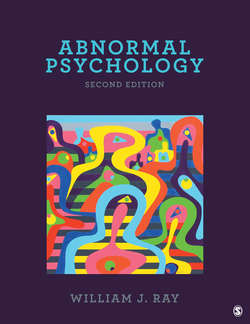Читать книгу Abnormal Psychology - William J. Ray - Страница 165
На сайте Литреса книга снята с продажи.
Assessment Validity
ОглавлениеValidity asks whether the instrument we are using is accurate. A clock, for example, could be reliable if it was always 5 minutes fast, but it would not be accurate. Unlike time, for which there is a definition in terms of atomic clocks, psychopathological disorders lack exact unchanging definitions. Although measures such as neuropsychological tests, brain images, and molecular and genetic changes suggest possible variables to be considered, there is currently no exact measure by which to diagnose psychopathology. This makes validity an important but complex concept. Partly for this reason, we consider a number of types of validity.
Content validity—the degree to which an instrument measures all aspects of the phenomenon. If a final exam only had questions from 1 week of the course, it would not be representative of what the students had learned. A variety of psychopathological disorders, such as depression, for example, have cognitive, emotional, and motor components. A measure that just asks if a person felt negative about the future would be seen as a less useful measure of depression than one that also asks about feeling sad and thoughts about suicide and self-worth.
Predictive validity—the degree to which an instrument can predict cognitions, emotions, or actions that a person will experience in the future. If an IQ test in high school predicted college performance, then it would be seen to have predictive validity. Many medical tests such as cholesterol measurements are designed to predict who is at risk for later medical conditions such as cardiovascular problems.
Concurrent validity—the ability of an instrument to show similar results as other established measures of the construct.
Construct validity—the extent that an instrument measures what it was designed to measure (Cronbach & Meehl, 1955). If a test was designed to measure what students learned in a course, then it would be a problem if the test was also sensitive to other factors such as intelligence or the ability to understand test questions asked in terms of double negatives.
Ecological validity—the manner in which data collected has been considered beyond the local context. For example, considering which cultural factors could be influencing the information obtained would improve the ecological validity of the data. This would also hold true in research studies involving mental illness in different cultures. That is, the meaning of a concept in one culture may be different from that in another.
Concept Check
What are five critical areas mental health professionals cover in an initial clinical interview?
Why is it important for mental health professionals to understand the cultural context of an individual’s mental disorder? What kinds of information does the CFI help mental health professionals obtain?
In terms of assessment, what are four types of reliability you should be concerned with, and why?
In terms of assessment, what are five types of validity you should be concerned with, and why?
